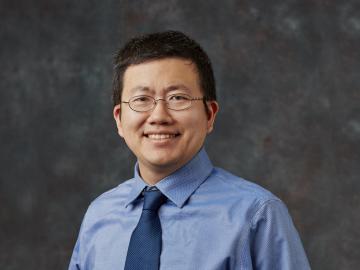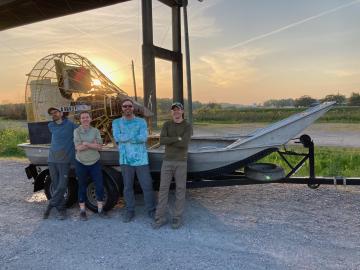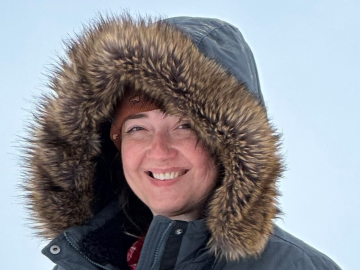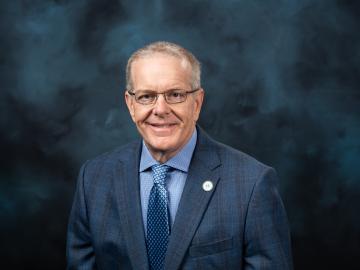
Filter News
Area of Research
- (-) Biology and Environment (180)
- (-) Geographic Information Science and Technology (3)
- (-) National Security (80)
- Advanced Manufacturing (34)
- Biological Systems (18)
- Biology and Soft Matter (5)
- Building Technologies (12)
- Chemical and Engineering Materials (4)
- Chemistry and Physics at Interfaces (11)
- Computational Biology (6)
- Computational Chemistry (5)
- Computational Engineering (5)
- Computer Science (19)
- Data (1)
- Electricity and Smart Grid (3)
- Energy Frontier Research Centers (14)
- Energy Science (526)
- Energy Sciences (5)
- Fossil Energy (3)
- Fuel Cycle Science and Technology (3)
- Functional Materials for Energy (16)
- Fusion and Fission (55)
- Fusion Energy (19)
- Isotope Development and Production (3)
- Isotopes (36)
- Materials (433)
- Materials Characterization (2)
- Materials for Computing (36)
- Materials Synthesis from Atoms to Systems (13)
- Materials Under Extremes (12)
- Mathematics (1)
- Neutron Data Analysis and Visualization (4)
- Neutron Science (212)
- Nuclear Science and Technology (75)
- Nuclear Systems Modeling, Simulation and Validation (3)
- Nuclear Systems Technology (1)
- Quantum Condensed Matter (4)
- Quantum information Science (9)
- Reactor Technology (1)
- Sensors and Controls (5)
- Supercomputing (319)
- Transportation Systems (11)
News Type
News Topics
- 3-D Printing/Advanced Manufacturing (13)
- Advanced Reactors (2)
- Artificial Intelligence (21)
- Big Data (16)
- Bioenergy (47)
- Biology (75)
- Biomedical (17)
- Biotechnology (14)
- Buildings (3)
- Chemical Sciences (13)
- Clean Water (11)
- Composites (5)
- Computer Science (36)
- Coronavirus (15)
- Critical Materials (1)
- Cybersecurity (19)
- Energy Storage (8)
- Environment (93)
- Exascale Computing (5)
- Frontier (4)
- Fusion (2)
- Grid (9)
- High-Performance Computing (24)
- Hydropower (8)
- Isotopes (2)
- Machine Learning (20)
- Materials (13)
- Materials Science (9)
- Mathematics (4)
- Mercury (7)
- Microscopy (10)
- Molten Salt (1)
- Nanotechnology (8)
- National Security (36)
- Neutron Science (7)
- Nuclear Energy (6)
- Partnerships (10)
- Physics (3)
- Polymers (2)
- Quantum Science (1)
- Security (12)
- Simulation (15)
- Summit (12)
- Transportation (5)
Media Contacts

When reading the novel Jurassic Park as a teenager, Jerry Parks found the passages about gene sequencing and supercomputers fascinating, but never imagined he might someday pursue such futuristic-sounding science.

Shih-Chieh Kao, manager of the Water Power program at ORNL, has been named a fellow of the American Society of Civil Engineer’s Environmental & Water Resources Institute, or EWRI.

Nature-based solutions are an effective tool to combat climate change triggered by rising carbon emissions, whether it’s by clearing the skies with bio-based aviation fuels or boosting natural carbon sinks.

As a biogeochemist at ORNL, Matthew Berens studies how carbon, nutrients and minerals move through water and soil. In this firsthand account, Berens describes recent fieldwork in Louisiana with colleagues.

Colleen Iversen, ecosystem ecologist, group leader and distinguished staff scientist, has been named director of the Next-Generation Ecosystem Experiments Arctic, or NGEE Arctic, a multi-institutional project studying permafrost thaw and other climate-related processes in Alaska.
Oak Ridge National Laboratory scientists led the development of a supply chain model revealing the optimal places to site farms, biorefineries, pipelines and other infrastructure for sustainable aviation fuel production.

Climate change often comes down to how it affects water, whether it’s for drinking, electricity generation, or how flooding affects people and infrastructure. To better understand these impacts, ORNL water resources engineer Sudershan Gangrade is integrating knowledge ranging from large-scale climate projections to local meteorology and hydrology and using high-performance computing to create a holistic view of the future.

Oak Ridge National Laboratory scientists exploring bioenergy plant genetics have made a surprising discovery: a protein domain that could lead to new COVID-19 treatments.

Using disinformation to create political instability and battlefield confusion dates back millennia. However, today’s disinformation actors use social media to amplify disinformation that users knowingly or, more often, unknowingly perpetuate. Such disinformation spreads quickly, threatening public health and safety. Indeed, the COVID-19 pandemic and recent global elections have given the world a front-row seat to this form of modern warfare.

Craig Blue, Defense Manufacturing Program Director at the Department of Energy’s Oak Ridge National Laboratory, was recently elected to a two-year term on the Institute for Advanced Composites Manufacturing Innovation Consortium Council, a body of professionals from academia, state governments, and national laboratories that provides strategic direction and oversight to IACMI.


